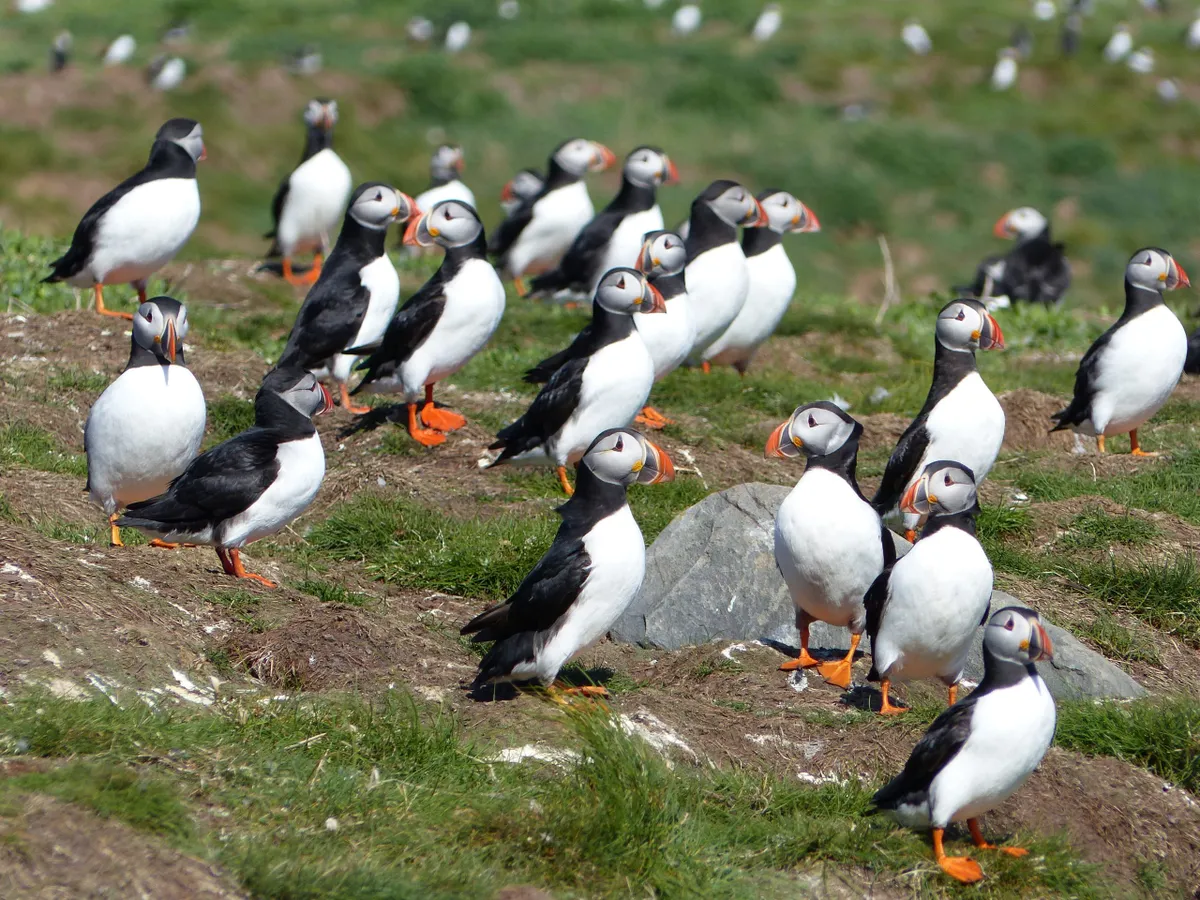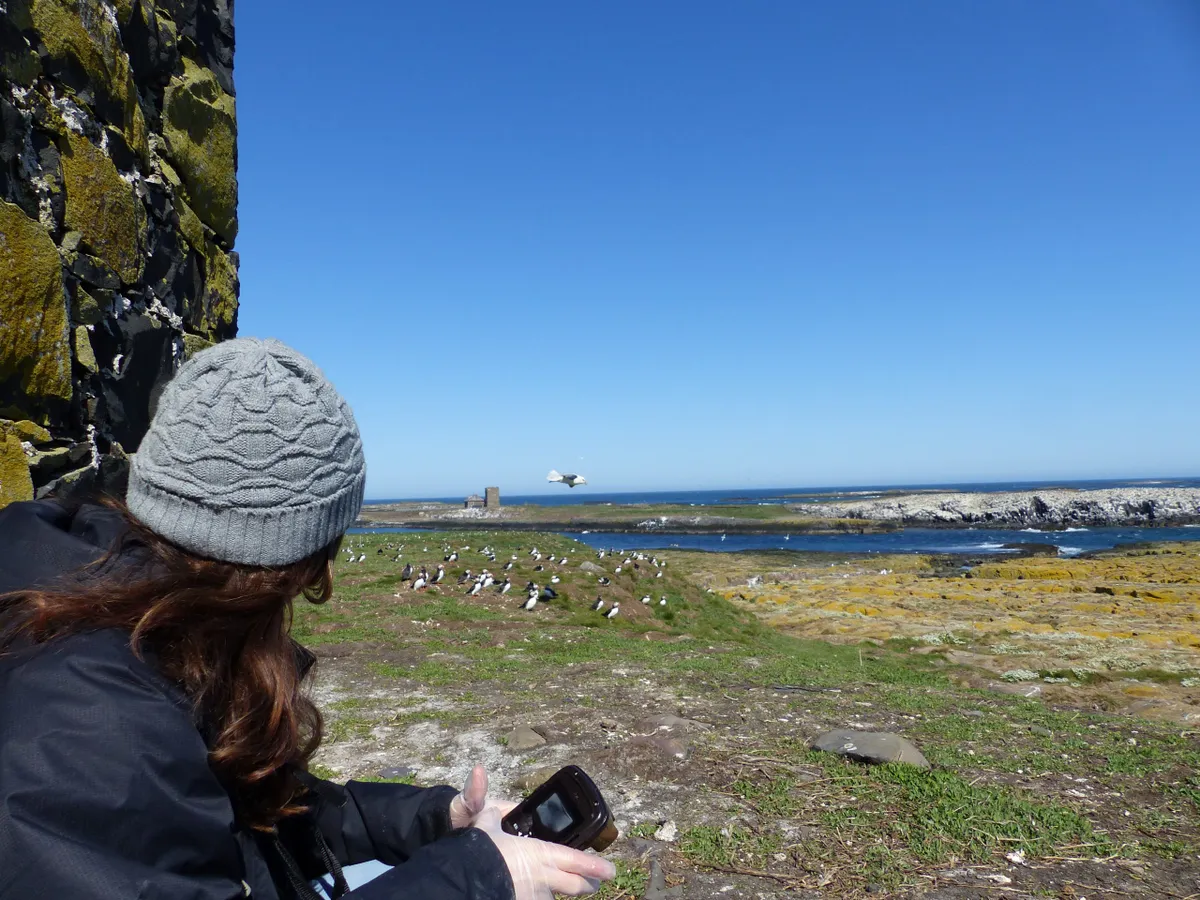Puffins have once again returned to the Farne Islands for the start of the breeding season, and the lack of tourists due to the current pandemic may see the birds expand their nesting sites, according the National Trust.
The first puffins to return to the Farne Islands were recorded in March by National Trust rangers. Now the islands are at full capacity and the birds are preparing for the breeding season with their distinctive bill-tapping, burrow-clearing and courtship displays.

“Puffins were first recorded back on the Farnes on 20 March, although they were first spotted a couple of weeks earlier when they were rafting off the islands. This is something they do early in the season when they meet in groups out to sea before moving onto the islands,” says National Trust Ranger on the Farne Islands Harriet Reid.
“Since then we have witnessed plenty of bill tapping and puffins with muddy fronts which is a sign they’re readying their burrows for their precious eggs.”
Over the past 25 years, the worldwide puffin population has been in decline. One of the main causes of the drop in bird numbers is climate change; rising sea temperatures affect their food sources, namely the sand eel, which lives in a cool water environments.
In 2019, more than 43,000 pairs of puffins were recorded on the Farne Islands. A lack of predators has enabled numbers on the islands to remain steady over the past few years.
Tourist boat trips to and from the islands are currently closed to members of the public due to the coronavirus. However, this lack of human contact could have a positive impact of Farne Island puffins, the National Trust suggests.

“We’ve spent the last 95 years protecting the seabird habitats and colonies here on the Farnes, so it’s important we carry on with a revised plan for this year, so all that hard work isn’t undone,” adds Reid.
“It is highly unlikely that we’ll be able to conduct our typical detailed survey of the seabirds due to not being able to have a full ranger team on site.
“So instead we’ll be keeping records of any significant changes we’re noticing within the colony through our observations, as well as monitoring footage from remote cameras we’ve set up at key points across the islands.”
“Puffins build their nests in burrows and in the absence of visitors we may see them expanding their usual nesting grounds to new parts of the islands. Areas such as the picnic spots on Inner Farne, which are usually popular with our visitors, could possibly see new guests this year.”